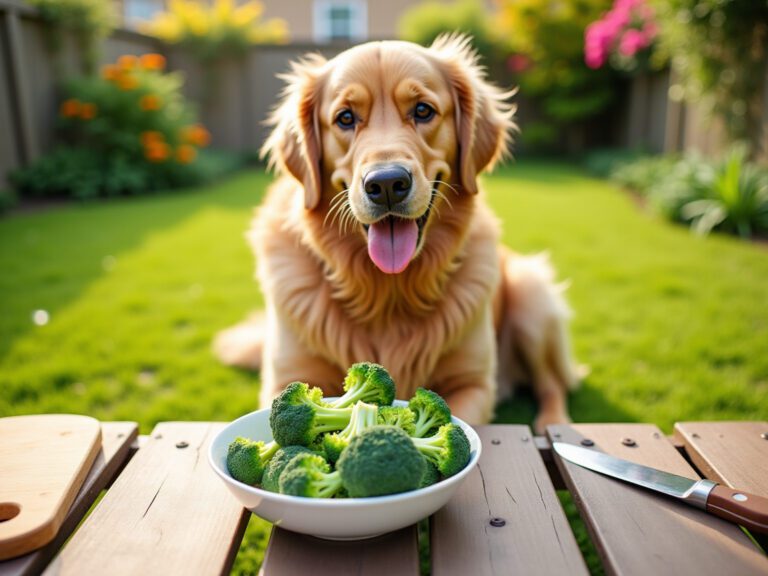Is Cheese Good for Dogs? Understanding Benefits and Risks
Overview
Cheese can be a delightful treat for your furry family members when offered in moderation. It provides essential nutrients like protein and calcium, and can even serve as an effective training aid that strengthens your bond.
However, it’s important to approach this tasty option with care. Some dogs may be lactose intolerant or prone to obesity and pancreatitis, which makes it crucial to consult your veterinarian before introducing cheese into their diet.
This way, you can ensure that every bite is beneficial and safe for your beloved pet.
Introduction
Cheese is a beloved treat for many dogs, and as caring pet owners, it’s natural to wonder about its place in their diets. This article gently explores the nuanced relationship between dogs and cheese, detailing which types can be beneficial and which should be avoided.
By highlighting the nutritional advantages of cheese, we can see its role in fostering training and bonding between you and your furry family members. However, it’s also essential to consider the risks associated with cheese consumption, such as lactose intolerance and potential health issues.
By providing thoughtful guidelines for safe feeding practices, we aim to empower you to make informed decisions that enhance your pets’ diets while ensuring their well-being. Your furry friends deserve the best, and together, we can create a nurturing environment for them.
Understanding Cheese: Definition and Types Suitable for Dogs
Cheese, a delightful dairy product derived from the curd of milk, comes in various forms, including hard, soft, and processed varieties. As pet owners, we often seek the best for our furry family members, and we often ask ourselves, is cheese good for dogs, as specific dairy options can be beneficial in moderation. Low-fat choices like mozzarella, cottage curds, and Swiss are generally safe for dogs, leading many to wonder if cheese is good for dogs because of their reduced lactose and fat content. As Lynn Guthrie, a devoted writer and pet owner, observes, ‘Plain cream spread is safe for most canines in small amounts.’ These dairy treats not only serve as tasty snacks but also act as effective training tools, creating wonderful moments of connection between pets and their owners, prompting the consideration of whether is cheese good for dogs. Dairy products such as blue varieties and those with added flavors or spices should be avoided, as they can pose risks to dogs. For instance, certain dairy items can trigger pancreatitis, particularly in breeds like schnauzers and cocker spaniels. Therefore, it’s wise for pet owners to consult with a veterinarian before introducing dairy into their dog’s meals, ensuring the safety and well-being of their beloved pets.
Beyond cheese, there are numerous dog-safe alternatives that provide similar nutrients without the added calories or fat. The case study titled ‘Dog-Safe Alternatives to Cheese’ presents an array of options such as:
- Blueberries
- Carrots
- Broccoli
- Plain cooked chicken
- Cooked eggs
- Turkey
- Green beans
- Zucchini
- Watermelon
- Bell peppers
These selections not only enhance the nutritional value of a dog’s diet but also nurture a strong bond between pets and their owners through shared quality time and nourishing meals. By choosing these alternatives, you can promote a balanced nutritional intake while enjoying precious moments with your furry companions.
Health Benefits of Cheese for Dogs: Nutritional Value and Uses
When considering if cheese is good for dogs, it’s important to note that cheese is a nutrient-rich food that offers numerous advantages for your furry family members, including essential protein, calcium, and vitamins A and B12. These nutrients play a crucial role in supporting muscle development, maintaining strong bones and teeth, and promoting overall health. The protein content in dairy products aids in muscle growth, while calcium is vital for skeletal strength.
Moreover, cheese is good for dogs as it serves as a delightful training aid; its appealing flavor makes it a preferred reward for many canines, boosting their enthusiasm during training sessions. When considering adding cheese to your dog’s diet, moderation is key. It should complement a balanced diet—one that includes a variety of proteins, carbohydrates, and fats—rather than replace it, as dogs require a range of nutrients from their regular food.
Health specialists recommend measuring portions accurately to ensure that cheese fits within your dog’s daily calorie limit. For instance, while plain cream cheese can be safe in small amounts, its high fat content makes it unsuitable for overweight dogs. Flavored options, especially those with additives like herbs, sugar, and spices, should be avoided due to potential risks to your dog’s well-being.
As Lynn Guthrie advises, always steer clear of types with additives to ensure your dog’s safety, and research indicates that, when used appropriately, cheese can be a beneficial addition to canine diets. It not only provides nutritional benefits but also enhances the training experience, making it a versatile tool for pet owners. Furthermore, opting for premium dairy selections, such as those that are fresh and suitable for human consumption, can further enhance your dog’s health.
By understanding the nutritional value of dairy products and their proper use, you can make informed decisions that contribute to your pet’s health and happiness. The case study titled ‘Cream Cheese for Dogs’ highlights that while plain cream cheese can be safe, it should be used sparingly, emphasizing the importance of careful portioning and the avoidance of flavored varieties.
Risks of Feeding Cheese to Dogs: Lactose Intolerance and Health Concerns
While many dogs find cheese to be a delightful snack, it’s essential to ask if cheese is good for dogs, as some of our furry family members may be lactose intolerant. This means they lack the enzyme lactase necessary to break down lactose, the sugar found in milk. If your dog is lactose intolerant, you might notice symptoms like diarrhea, vomiting, or abdominal discomfort. Interestingly, larger dogs, those weighing over 51 pounds, may generally handle larger servings of dairy, yet caution is still advised. Excessive dairy can lead to obesity and pancreatitis due to its high-fat content, so it’s essential for pet owners to keep a close eye on their dogs’ reactions.
Veterinary experts emphasize the importance of consulting with a veterinarian before introducing dairy products into your dog’s diet, especially if they have existing health concerns like obesity or pancreatitis. Dr. Jessica Hekman, DVM, PhD, a dedicated veterinary researcher, shares, “I wouldn’t draw the conclusion that since my dog’s breed is historically from a particular part of the world, my dog will be lactose intolerant.” Not all dairy options are the same; low-fat choices like mozzarella and cottage cheese can be healthier alternatives. However, always check the ingredients for harmful additives such as garlic or chives, which can be toxic to dogs. While string cheese is often lower in lactose and sodium, it can pose choking hazards or lead to intestinal blockages if not given carefully—so supervision is key when your pet enjoys this treat.
In conclusion, while some dogs can enjoy dairy products, it’s vital for pet owners to stay alert for any signs of lactose intolerance and to question whether cheese is good for dogs, considering the potential health risks linked to dairy consumption. Consulting a veterinarian is always a wise step to ensure that the dairy treat is appropriate for your beloved dog.
Guidelines for Safely Feeding Cheese to Dogs: Best Practices and Recommendations
To safely include dairy in your dog’s nutrition, moderation is essential. Consider offering small portions, like one or two thumbnail-sized pieces, tailored to your dog’s size and individual tolerance. Opt for low-fat varieties such as mozzarella and cottage cheese, as these options are easier to digest and lower in calories.
When considering if cheese is good for dogs, you should:
- Slowly incorporate dairy into their diet, observing your dog’s response.
- Avoid it for dogs with lactose sensitivity or those on calorie-limited regimens.
- Treat cheese as an occasional treat or training aid rather than a staple in their diet.
Remember, treats should make up no more than 10% of your dog’s daily caloric intake. Always steer clear of varieties with additives like herbs, sugar, and spices, as noted by writer Lynn Guthrie. Additionally, be cautious with hard and chunky types of dairy, as they can pose a choking hazard if not properly chewed.
Frequent discussions with your vet can help ensure that dairy fits your dog’s overall nutritional requirements, enhancing their well-being while minimizing potential risks. While cheese can offer several health benefits, such as promoting a shiny coat and strong bones, it’s crucial to consider whether cheese is good for dogs and treat it as an occasional delight rather than a regular part of your dog’s diet. Your furry family member deserves the best care, and with thoughtful choices, you can provide a nurturing environment for them.
Conclusion
Cheese can be a delightful addition to your furry family members’ diet when approached with care and knowledge. Many pet owners may wonder about the benefits of cheese for their dogs, and it’s important to note that certain low-fat varieties, such as mozzarella and cottage cheese, can provide valuable nutrients while serving as effective training aids. However, being aware of potential risks, like lactose intolerance and pancreatitis—especially in breeds more susceptible to dietary changes—is crucial.
Moderation and careful selection are key when introducing cheese into your dog’s meals. By opting for plain, low-fat varieties and avoiding those with harmful additives, you can enhance your dog’s diet while minimizing health risks. Remember, consulting a veterinarian is vital; their professional guidance ensures that cheese consumption aligns with your dog’s unique health needs.
In conclusion, cheese can foster bonding and enrich training experiences, but it should be treated as an occasional treat rather than a dietary staple. By adhering to safe feeding practices and being mindful of individual dietary requirements, you can confidently incorporate cheese into your furry friends’ lives, supporting their overall health and happiness. Your commitment to understanding their needs is what truly nurtures a loving environment.
Frequently Asked Questions
Is cheese good for dogs?
Cheese can be good for dogs in moderation, particularly low-fat options like mozzarella, cottage curds, and Swiss, which have reduced lactose and fat content.
What types of cheese are safe for dogs?
Safe cheese options for dogs include mozzarella, cottage curds, and Swiss. Plain cream spread is also safe in small amounts.
Are there any cheeses that should be avoided for dogs?
Yes, dogs should avoid blue cheeses and those with added flavors or spices, as they can pose risks. Certain dairy items can trigger pancreatitis, especially in breeds like schnauzers and cocker spaniels.
Should I consult a veterinarian before giving my dog cheese?
Yes, it is wise for pet owners to consult with a veterinarian before introducing dairy into their dog’s meals to ensure safety and well-being.
What are some dog-safe alternatives to cheese?
Dog-safe alternatives to cheese include blueberries, carrots, broccoli, plain cooked chicken, cooked eggs, turkey, green beans, zucchini, watermelon, and bell peppers.
How do these alternatives benefit my dog?
These alternatives enhance the nutritional value of a dog’s diet and help nurture a strong bond between pets and their owners through shared quality time and nourishing meals.







